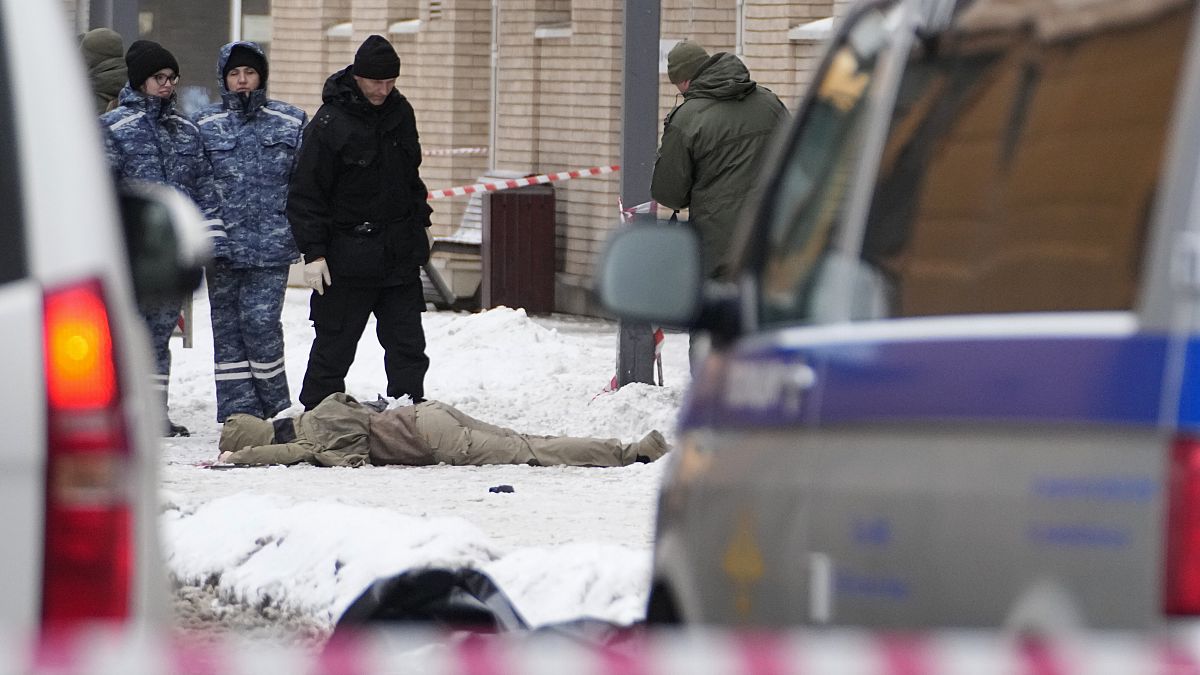The statement follows the death of Lieutenant General Igor Kirillov who was killed on 17 December by a bomb hidden on an electric scooter parked outside his apartment building as he left for his office.
Russia’s top security agency has said that it has arrested several suspects accused of involvement in an alleged Ukrainian plot to assassinate senior military officers, an announcement that follows the killing of a top Russian general last week.
The Federal Security Service, the successor service to the KGB known under its Russian acronym FSB, said in a statement carried by Russian news agencies that it had arrested four Russians accused of making preparations to kill senior Defence Ministry officials.
The FSB said that the suspected organisers of the attacks were planning to kill one of the senior officers using a remotely controlled car bomb.
It added that another top military official was to be assassinated by an explosive device hidden in an envelope.
The agency didn’t name the military officers who were targeted in the alleged plot.
The FSB released a video showing the arrest and interrogation of the suspects, who weren’t named.
The statement follows the death of Lieutenant General Igor Kirillov who was killed on 17 December by a bomb hidden on an electric scooter parked outside his apartment building as he left for his office.
Kirillov’s assistant also died in the attack that was claimed by Ukraine and brought the conflict once again to the streets of the Russian capital.
The FSB has arrested a suspect in connection with that bombing, a citizen of Uzbekistan, and claimed that he said that he had been recruited by Ukrainian special services.
Kirillov, 54, was the chief of Russia’s Radiation, Biological and Chemical Protection Forces.
These special troops are tasked with protecting the military from the enemy’s use of nuclear, chemical or biological weapons and ensuring operations in a contaminated environment.
Russian President Vladimir Putin described Kirillov’s killing as a “major blunder” by Russia’s security agencies, noting they should learn from it and improve their efficiency.
Read the full article here


